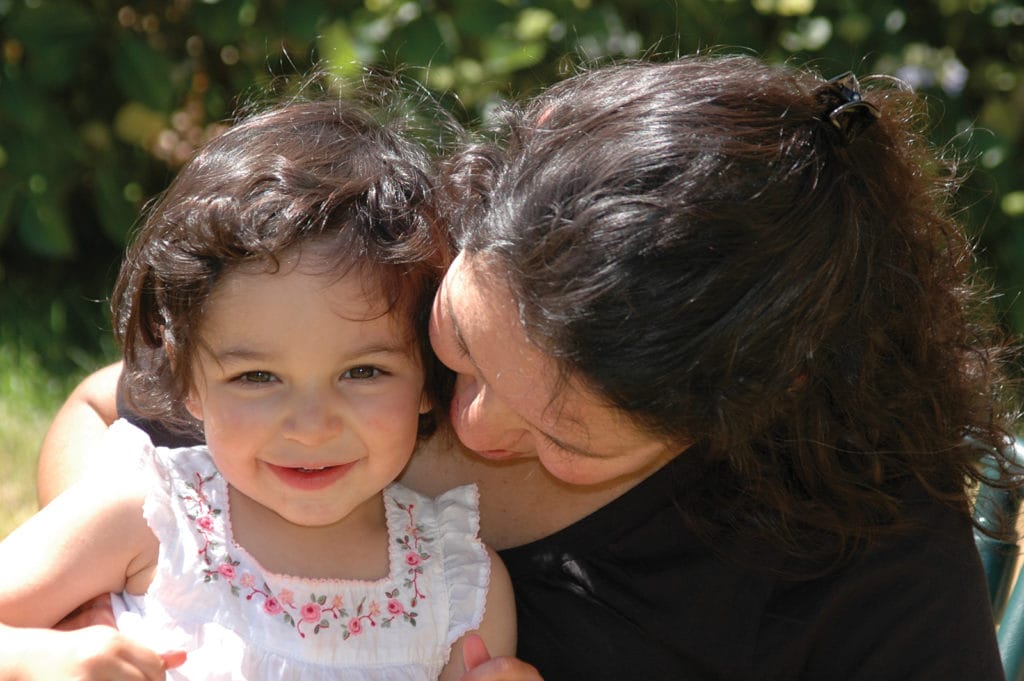Promoting First Relationships now eligible for MIECHV funding!

Our Promoting First Relationships (PFR) Home Visiting Intervention is now approved by the Home Visiting Evidence of Effectiveness (HomVEE) review and is eligible for Maternal Infant and Early Childhood Home Visiting (MIECHV) funding. This new opportunity gives organizations increased access to funding for PFR home visiting to serve families and their children birth to five.
What is PFR?
Promoting First Relationships (Kelly, Zuckerman, Sandoval & Buehlman, 2003, 2008, 2016) is a brief 10-week home visiting program designed for caregivers with infants and young children, birth to age five. Our healing-centered approach supports family resilience. Using strengths-based and reflective strategies, caregivers gain a deeper understanding of their own and their child’s unique needs within the relationship. PFR trained providers use video observation and a consultative stance to partner with the caregiver to enhance and reinforce their emotional connection with their child.
Consistent Positive Results over 15 years
Five randomized clinical trial studies have been conducted with PFR. There were two studies in child welfare, two with Indigenous communities, and one with English and Spanish-speaking women who were referred to mental health providers during pregnancy.
Parenting Outcomes
PFR helps caregivers become more sensitive and responsive during interactions and supports them in gaining a deeper understanding of infant/toddler’s social and emotional needs.
Child Outcomes
Studies have found reductions in children acting out, less atypical affective communication, or fewer sleep problems. Results showed improved social competency, child stress physiology (cortisol) and respiratory sinus arrhythmia (RSA) during difficult tasks. In a sample of infants at risk for autism spectrum disorder, studies showed improved neurocognitive metrics of social attention (measuring an increase in frontal EEG theta power between 6 and 12 months).
Child Welfare Outcomes
In addition to showing improvements in caregiving, children receiving care by foster and kin caregivers had greater placement stability (e.g., fewer placement disruptions) two years post intervention. Among families under investigation by Child Protective Services, children were 2.5 times less likely to be placed into foster care, thereby keeping families together.
Benefits for Struggling Families
A sub-sample of reunified birth parents experienced much larger positive effects in their caregiving sensitivity and responsiveness, and a greater reduction in acting out behaviors. With parents under investigation by Child Protective Services, the PFR sample of caregivers who reported physical maltreatment when they were children had much stronger improvements in their sensitive and responsive care. Women who started the intervention with very high symptoms of depression/anxiety and psychological distress improved more in their sensitive and responsive caregiving, with greater improvements in their parenting confidence.
For a detailed research summary, click here.
For copies of specific articles, please contact PFR Director, Jennifer Rees, rees@uw.edu
Learn More about Training and Implementation
The Promoting First Relationships program has twenty years of experience in helping organizations disseminate our home visiting program successfully. We have worked with the state of Washington to train providers statewide to deliver PFR to families involved with child welfare services, as well as early intervention services. PFR has trained organizations internationally in Australia and Canada to deliver the evidence-based home visiting program and maintain fidelity to the model. PFR is implemented in agencies of various sizes and disciplines including public health, community mental health, early childhood education, early learning centers, family support services, child welfare, early intervention, tribal communities, and pediatric health clinics. Just as every family, caregiver and child is unique, PFR understands that all organizations have their own unique needs and capacities. PFR works with each organization to best support them in implementing the PFR program successfully at their site.
For more information about training and implementation, visit our PFR website, pfrprogram.org or contact PFR Director, Jennifer Rees, rees@uw.edu
Share this post
Questions?
Please give us a call
We look forward to talking with you!
-
Phone
206-543-8528
-
Business hours
Monday – Friday
7:30am – 4pm
-
E-mail
pcrp@uw.edu
-
Mailing Address
Parent-Child Relationship ProgramsUniversity of Washington - Box 357231
Seattle, WA 98195-7231
-
Office Address
Parent-Child Relationship ProgramsUniversity of Washington
Health Sciences Building F-346
Seattle, WA 98195-7231
Prefer exploring on your own?
Check out our FAQ section
for answers to common questions
WE WANT TO CONNECT WITH YOU!
Feel free to fill out our contact form or call us at 206-543-8528
Frequently Asked Questions
Explore our FAQ section to find quick, helpful answers to the most common questions. If you don't find what you're looking for, click here to Contact us - we're here to help!